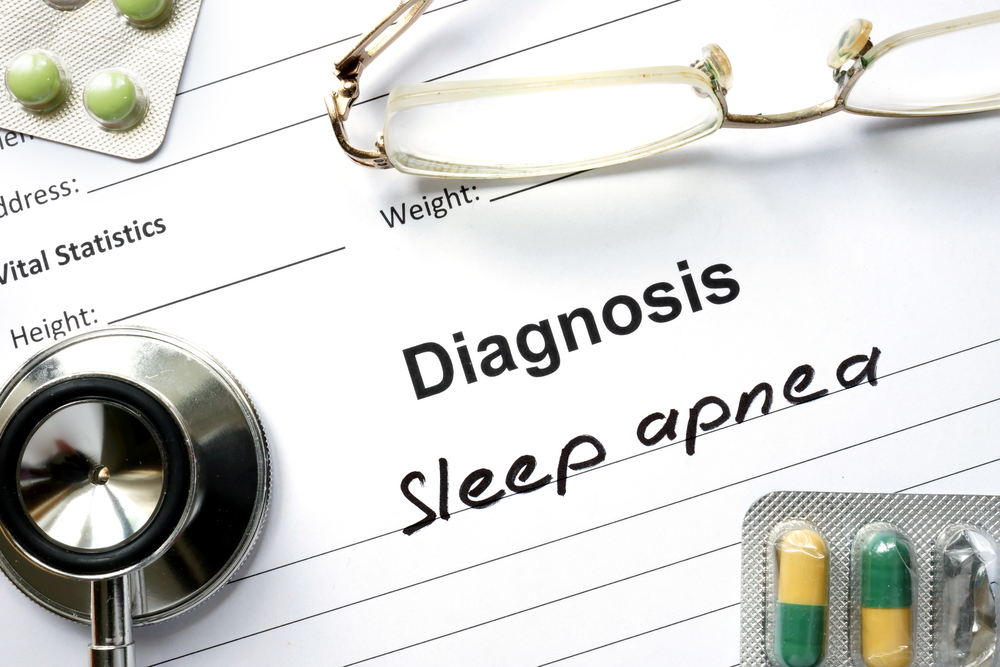In today’s busy world, there is nothing that beats a good night’s sleep. Unfortunately for many people that is not possible. Many experience breathing difficulties while asleep, causing them to wake up suddenly or get up in the morning feeling exhausted. This is due to a condition known as sleep apnea. Over 22 million Americans suffer from sleep apnea, and it can prevent restful sleep and lead to serious negative health consequences.¹ Fortunately, modern treatments can make dealing with sleep apnea much easier.

What Is Sleep Apnea?
Sleep apnea is a broad term used to describe one of three conditions that negatively affect breathing and oxygen intake during sleep. The most common is obstructive sleep apnea. This is a condition where breathing is frequently interrupted during sleep by tense throat muscles. Breathing starts and stops often and is often accompanied by loud snoring.
Another kind of sleep apnea is central sleep apnea which occurs when your brain does not communicate with your breathing muscles. There is also complex sleep apnea which is a combination of central sleep apnea and obstructive sleep apnea. The end result is a lack of oxygen, unrestful sleep and—in some more serious cases—long-term health deterioration.²
The Best Solution: Get A CPAP Machine
The best solution for sleep apnea is to get a Continuous Positive Airway Pressure (CPAP) machine. This requires a prescription from a doctor, so you will need to book an appointment. In order to use a CPAP machine you put a small mask over your face and then go to sleep. It generates air pressure from the machine and relaxes your throat muscles, keeping them from closing up suddenly or having breathing interruptions during sleep.
Putting on the mask every night will make a big difference. Some people suffering from sleep apnea report feeling much better already by the first or second night’s sleep, while for others it can take weeks or even months. It very much depends on the person. Nonetheless, if you notice no improvement you can follow up with your doctor for further guidance.³
Additional Sleep Apnea Solutions: Healthy Eating
The number one reason people develop sleep apnea is due to being overweight. The extra soft tissue in the mouth and throat of overweight individuals can cause their airways to become blocked.⁴ If your neck’s circumference measures above 16-and-a-half inches or you have a body mass index above 30 then you are likely to experience sleep apnea as part of your weight problems.
Developing a healthy diet is one way to tackle the weight issue and, indirectly, the sleep apnea. In addition, various vitamins including Vitamin C and antioxidants such as Vitamin E, fatty fish and Omega 3 oils, and selenium have shown the ability to significantly help improve the symptoms of sleep apnea.⁵
Exercise Can Help Fight Apnea
Adding in a regular exercise regimen is another good piece of advice, as it has been clinically proven to fight against sleep apnea. By building up muscle mass and losing fat, you are fighting against the conditions that help contribute to sleep apnea.⁶ Even just 20 minutes of cardiovascular or weight training exercise per day can have significant long-term health benefits and prevent diseases from osteoporosis to diabetes.⁷
Avoid Drink and Drugs
This is good advice in general, but you should avoid over-drinking or taking intoxicants. Alcohol often makes sleeping problems worse, as do many drugs like opioids. Smoking is also a bad idea, as it can irritate the lungs and cause a worsening of the conditions that contribute to sleep apnea.
Remember to do your own research online. It’s always worth staying informed to make sure you are aware of the latest sleep apnea treatments. However, before you make any huge lifestyle changes, always consult with your doctor first. They know your medical history best and will be able to help make sure you are being treated safely and effectively.
[1] https://www.sleepapnea.org/learn/sleep-apnea-information-clinicians/
[2] https://www.mayoclinic.org/diseases-conditions/sleep-apnea/symptoms-causes/syc-20377631
[3] https://www.sleep-apnea-guide.com/how-long-does-it-takes-to-feel-better-with-cpap.html
[4] https://www.webmd.com/sleep-disorders/sleep-apnea/obstructive-sleep-apnea-causes
[5] https://www.ncbi.nlm.nih.gov/pubmed/16585082
[6] https://www.ncbi.nlm.nih.gov/pmc/articles/PMC5344097
[7] https://www.20minutestofitness.com/about/results


